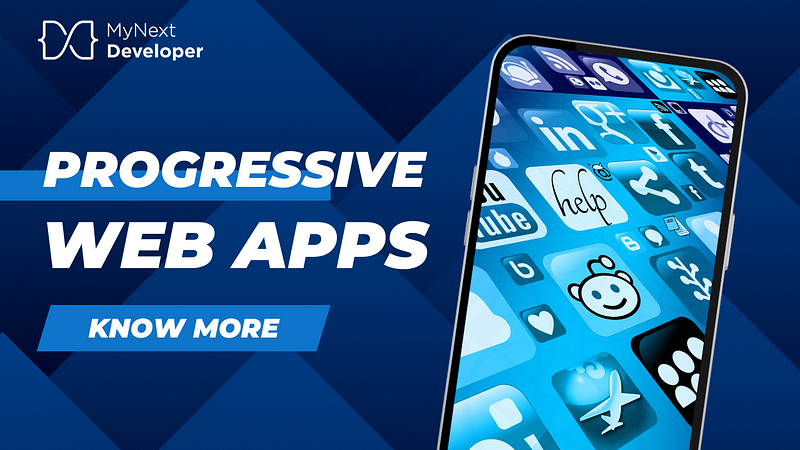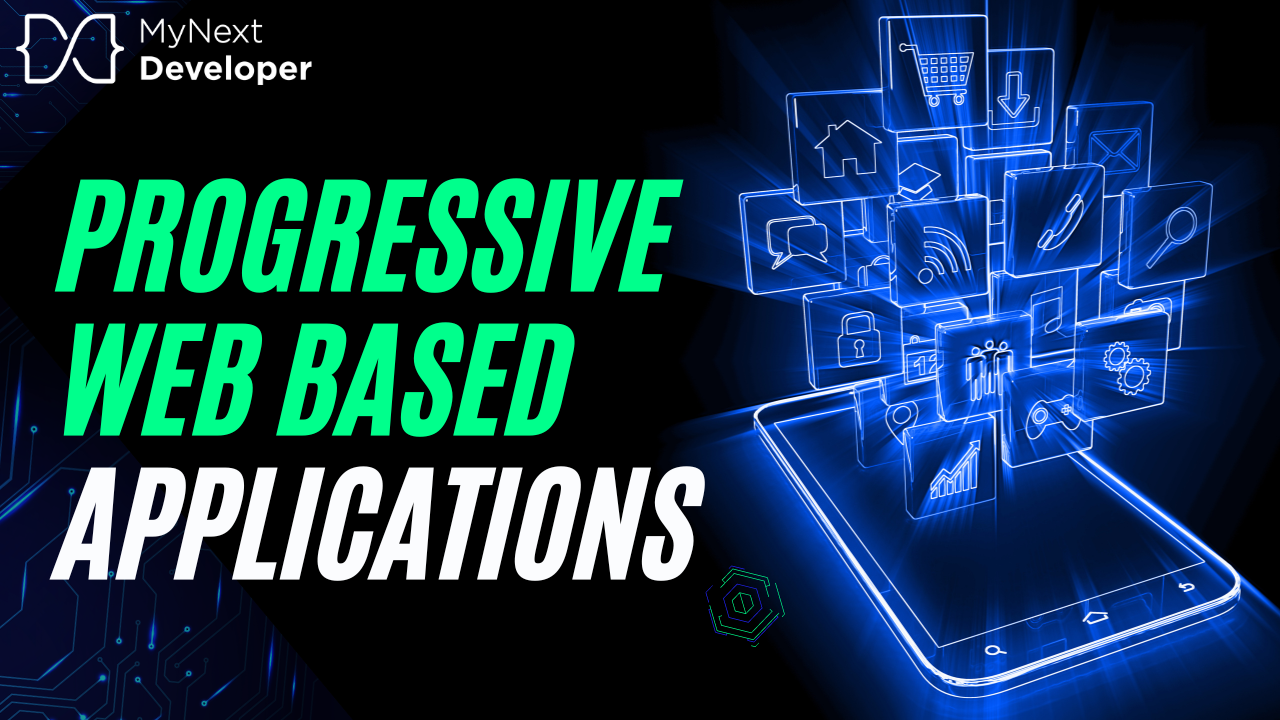Progressive Web Apps: Mobile sites that feel like apps.
Progressive Web Apps: Mobile sites that feel like apps.

With the increasing dominance of mobile devices in our daily lives, businesses are constantly seeking innovative ways to engage their audience and provide seamless experiences. Progressive Web Apps (PWAs) have received a lot of attention recently. PWAs offer a new model for web applications, combining the best of web and mobile app functionalities. In this article, we will explore the potential of PWAs as the future of mobile experiences, debunking the notion of it being a mere hype cycle fad.
What are Progressive Web Apps?
Progressive Web Apps are websites that provide an app-like experience to users on all devices. They use contemporary web capabilities like service workers and web app manifests to give functionality that was previously limited to native mobile applications. PWAs are designed around a set of standards, including HTTPS, a Web App Manifest, and the inclusion of a service worker.
The goal of PWAs is to produce websites that are responsive, network-independent, lightweight, safe, discoverable, engaging, installable, and linking. These features ensure that PWAs provide a consistent user experience independent of device or network conditions.
The Rise of Progressive Web Apps
Alex Russell and Frances Berriman established the notion of PWAs in 2015, coining the term “progressive web apps.” Since then, PWAs have gained popularity and support from major technology companies including Google, Apple, and Microsoft. Companies like as Starbucks, Pinterest, Tinder, and Google Maps have successfully implemented PWAs, demonstrating the technology’s promise in a variety of industries.
PWAs offer various advantages, which have contributed to their growing popularity.
These qualities include dependability, speed, engagement, security, discovery, responsiveness, and lightweightness. PWAs load instantly, respond swiftly to user interactions, perform similarly to native apps, provide greater security, eliminate the need for app stores, and provide a native app-like user experience.
The Impact of Progressive Web Apps
The impact of PWAs can be seen in the success stories of various businesses. For instance, when Pinterest rebuilt its website as a PWA, it witnessed a 60% increase in core engagements, a 40% increase in time spent on the website, and a 44% rise in user-generated ad revenue. Petlove’s PWA resulted in a 2.8x increase in conversion and time spent on site. The Best Western River North Hotel saw a staggering 300% increase in revenue after implementing a PWA.
PWAs offer a range of advantages to businesses, including lower development and maintenance costs, better reach, convenient distribution, improved SEO capabilities, and no version updates. They also provide a native app-like user experience with no compromise on functionality while being highly responsive and lightweight.
The Future of Progressive Web Apps
The future of PWAs looks promising, as major browsers continue to extend support for the technology. Google, Apple, and Microsoft have demonstrated their commitment to PWAs by integrating them into their platforms and browsers. With PWAs now supported on all desktop platforms, including Linux, Mac, Chrome, and Windows, they have become an integral part of the web ecosystem.
PWAs are the answer to the ever-increasing number of mobile users and their expectations for seamless experiences. By leveraging the power of PWAs, businesses can enhance their m-commerce channels, improve user engagement, and stay competitive in the digital landscape. PWAs eliminate the need for users to download and install apps from app stores, offering a frictionless experience and increasing user retention.
Successful Examples of M-commerce PWAs
Several e-commerce giants have successfully implemented PWAs and reaped the benefits of this technology. Let’s review some significant examples-
George.com
Owned by Walmart, the George clothing brand faced challenges with its m-commerce channel. To overcome these challenges and enhance the user experience, George.com adopted a PWA-focused approach. By leveraging the capabilities of PWAs, George.com was able to revamp its storefront ambience, enhance speed, and provide a more immersive experience for users.
The PWA implementation resulted in improved website performance, faster page load times, and increased customer engagement. George.com’s PWA version offered a native app-like experience with seamless navigation and enhanced responsiveness. The success of George.com’s PWA serves as a testament to the impact and potential of PWAs in the e-commerce industry.
Aliexpress.com
Aliexpress, one of the world’s largest online retail platforms, also embraced PWAs to enhance its m-commerce experience. The challenges faced by Aliexpress included slow page load times, high bounce rates, and a lack of engagement. By implementing a PWA, Aliexpress was able to address these challenges and provide a more user-friendly and immersive shopping experience.
The PWA version of Aliexpress.com offered lightning-fast performance, offline access, and push notifications, ensuring that users could browse and shop seamlessly. The PWA also facilitated better discoverability, as users could access the website directly without having to visit an app store. The success of Aliexpress.com’s PWA highlights the potential of PWAs in improving user engagement and driving business growth.
Lancome.com
Lancome, a renowned beauty and cosmetics brand, leveraged the power of PWAs to optimize its m-commerce channel. The challenges faced by Lancome.com included low conversion rates, a lack of user engagement, and the need for a more immersive and personalized user experience. By adopting a PWA approach, Lancome.com was able to address these challenges and deliver exceptional results.
The PWA version of Lancome.com provided a seamless shopping experience with fast loading times, offline access, and push notifications. Users could browse products, read reviews, and make purchases without any interruptions. The PWA also offered enhanced security, ensuring that users’ personal information was protected. The success of Lancome.com’s PWA demonstrates the potential of PWAs in the beauty and cosmetics industry.
Challenges and Limitations
While PWAs offer numerous advantages and have shown great potential, there are still some challenges and limitations to consider. One challenge is the limited support for PWAs on iOS devices, as Apple’s Safari browser has certain restrictions and limitations. This can impact the user experience for iOS users and limit the functionality of PWAs on these devices.
Another challenge is the need for businesses to invest in the development and maintenance of PWAs. While PWAs can be cost-effective compared to native app development, they still require resources and expertise to ensure optimal performance and user experience. Additionally, the constant evolution of web technologies and standards may require businesses to stay updated and adapt their PWAs accordingly.
Despite these challenges, the future of PWAs remains bright. As more businesses embrace PWAs and major browsers extend their support, the technology will continue to evolve and address these limitations. With their ability to provide seamless experiences, improve engagement, and drive business growth, PWAs are poised to revolutionize the mobile web and shape the future of mobile experiences.
In conclusion, Progressive Web Apps offer a transformative approach to mobile experiences, combining the best of web and app functionalities. With their numerous benefits, successful implementations in various industries, and support from major tech giants, PWAs have proven to be more than just a hype cycle fad. As businesses strive to meet the expectations of mobile users and deliver seamless experiences, PWAs offer a promising solution. By embracing PWAs, businesses can enhance their m-commerce channels, improve user engagement, and stay ahead in the ever-evolving digital landscape.
In conclusion, Progressive Web Apps offer a transformative approach to mobile experiences, combining the best of web and app functionalities. With their numerous benefits, successful implementations in various industries, and support from major tech giants, PWAs have proven to be more than just a hype cycle fad. As businesses strive to meet the expectations of mobile users and deliver seamless experiences, PWAs offer a promising solution. By embracing PWAs, businesses can enhance their m-commerce channels, improve user engagement, and stay ahead in the ever-evolving digital landscape.
Ready to build your tech dream team?
Look no further than MyNextDeveloper, where we have curated a network of India’s top 3% software engineers who are driven by a passion for innovation.
Our on-demand, dedicated, and end-to-end software talent solutions provide a one-stop solution for all your software needs. Visit us to learn more about how we can help you create your ideal team.


